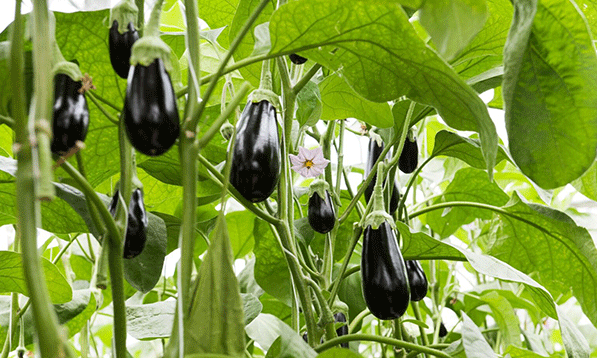
Fresh facts: everything you need to know about locally-grown greenhouse veggies
April 17, 2019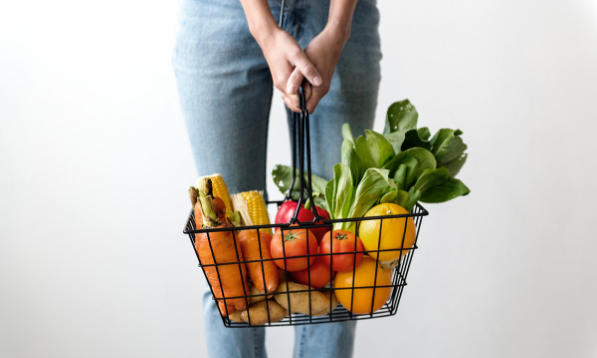
Support local: your guide to sourcing BC products at the grocery store
June 18, 2019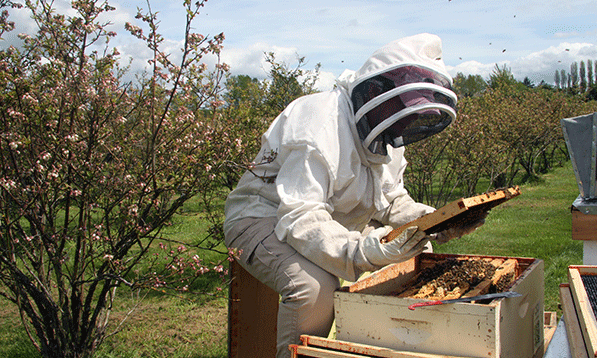
It’s tempting to grump about pollen in the springtime (especially when you’re sneezing) but BC farmers know that pollination is vital to agriculture. In fact, somewhere between 75% and 90 % of our world’s flowering plants need pollinators - animals like bees, butterflies, birds and bats - to help them reproduce. As a result, you can thank a pollinator for every third bite of food you eat . This month, we’re highlighting all the great ways that BC farmers support our pollinators, and giving some tips on bee-friendly actions you can take in your own garden!
First, a little science: when pollinators visit a plant to drink nectar, they also help spread pollen from the male part of a flower to the female part. After pollination, the plant can produce fruit, nuts, seeds...and the next generation of plants. Crops like apples, pears, cucumbers, and berries all rely on pollination (largely from managed honey bee colonies) to produce a bountiful harvest.
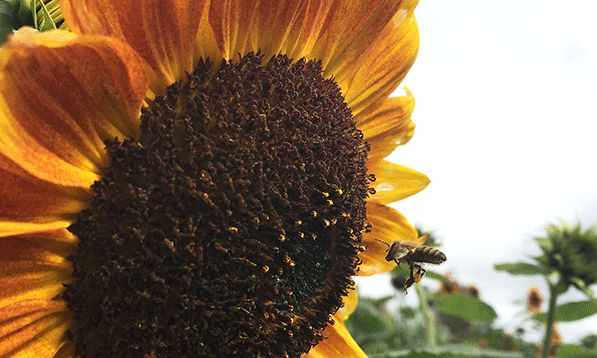
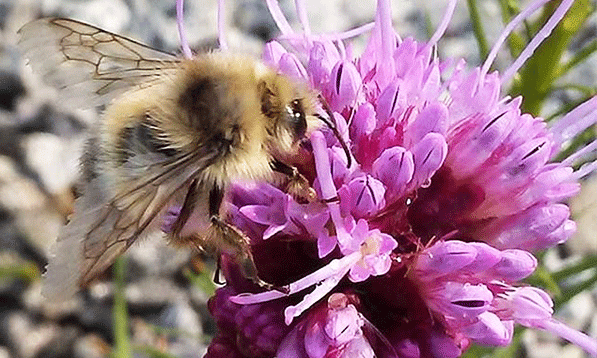
Pollinators are even responsible for the look of our food. As just one example, if the blueberries you buy from your local grocery store are uniformly sized, you can thank BC’s hard-working honey bees. Without bees pollinating the plant, blueberries will range in size! (You can learn more in our chat with BC’s blueberry growers and honey producers here.)
In addition to fresh food, flowering plants that are pollinated produce half of the world’s oils, fibers and raw materials, and they also prevent soil erosion. So even though pollinators like bees and butterflies might be the little guys of the animal kingdom, they’re a very big deal to BC’s farmers.
How do you make a bee (or a bird, or a bat, or a butterfly) happy? Here are just a few ways that farmers and ranchers in BC contribute to healthy pollinators:
- Planting rows of flowering plants between crops that provide nectar successively from spring to fall; and planting flowering cover crops.
- Adjusting agricultural practices like mowing and tilling to minimize disturbance to pollinators.
- Providing pollinator habitat such as planting hedgerows, maintaining native plants in pastures and rangelands, and installing nesting areas for birds (e.g. through Beneficial Management Practices)
- Collaborating with BC beekeepers to provide a healthy environment for honey bees
- And using approaches such as Integrated Pest Management to control pests through techniques like crop rotation, beneficial insects, and responsible use of pesticides. (e.g. spraying at times when pollinators like bees are inactive, like at night)
There are 450 species of bees alone in BC - and that’s not counting all of the other pollinating species like wasps, butterflies, bats and birds.
There are 450 species of bees alone in BC - and that’s not counting all of the other pollinating species like wasps, butterflies, bats and birds. Support them all, farmer-style, by creating your own pollinator-friendly habitat in your own yard and garden! Here are some tips:
- Buy pollinator-friendly flowers and plant a diversity of them to feed pollinators all through the season. The BC Landscape and Nursery Association has a detailed online plant lookup tool you can use to figure out which plants are appropriate for your zone. Even a window box can make a big difference!
- Leave shelter and water for pollinators: even insects like bees need a drink, so leave them a dish of water in your garden with a few rocks in it for them to stand on.
- Get comfortable with a little mess: resist the urge to clean leaves out of your garden until pollinators hatch in the spring (when the temperature hits around 10 degrees every year).
You can find more tips on gardening for pollinators here, from our friends at Plant Something Bee Friendly BC!
Photo credit: BC Honey Producers Association and BC Landscape & Nursery Association